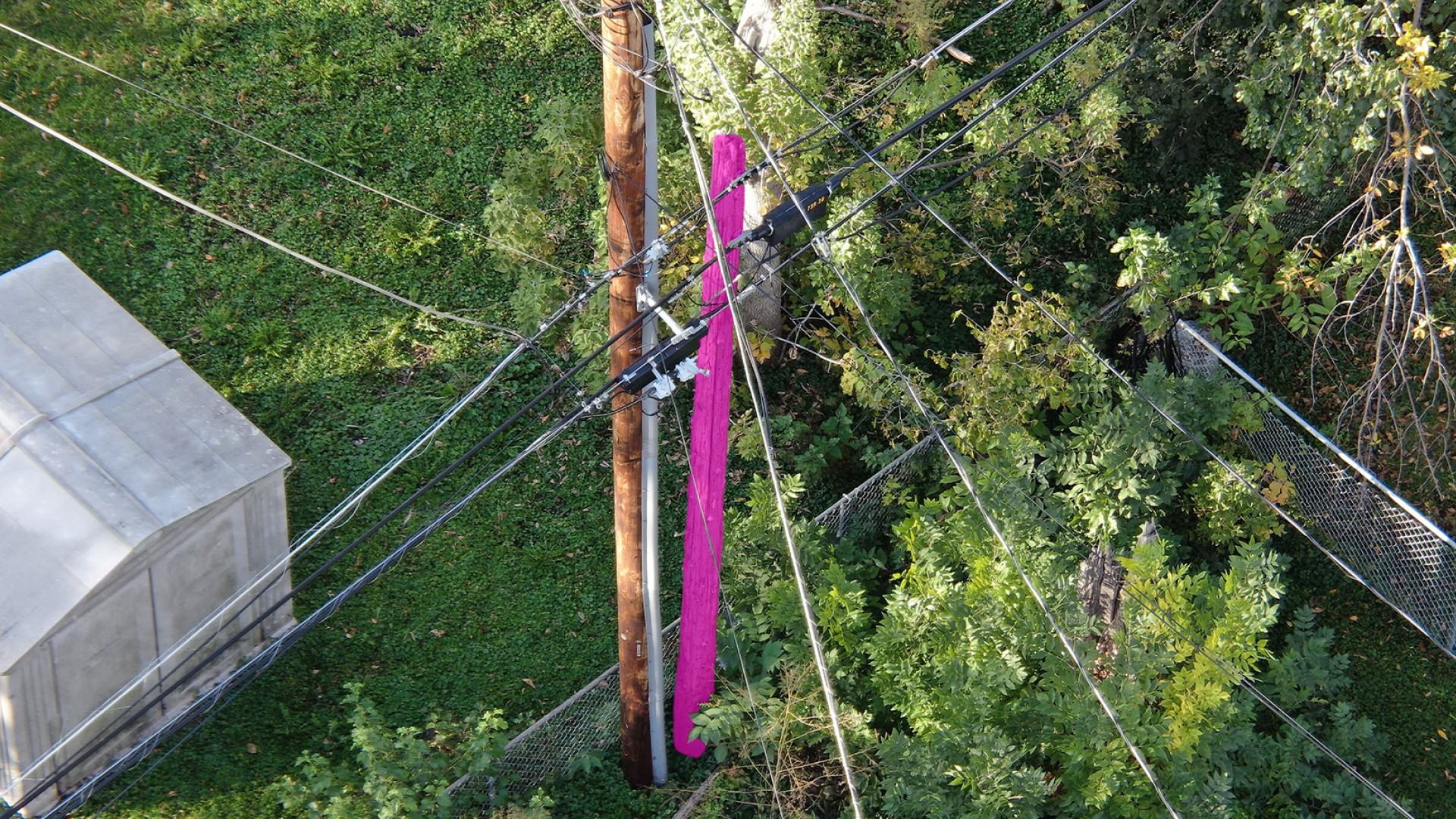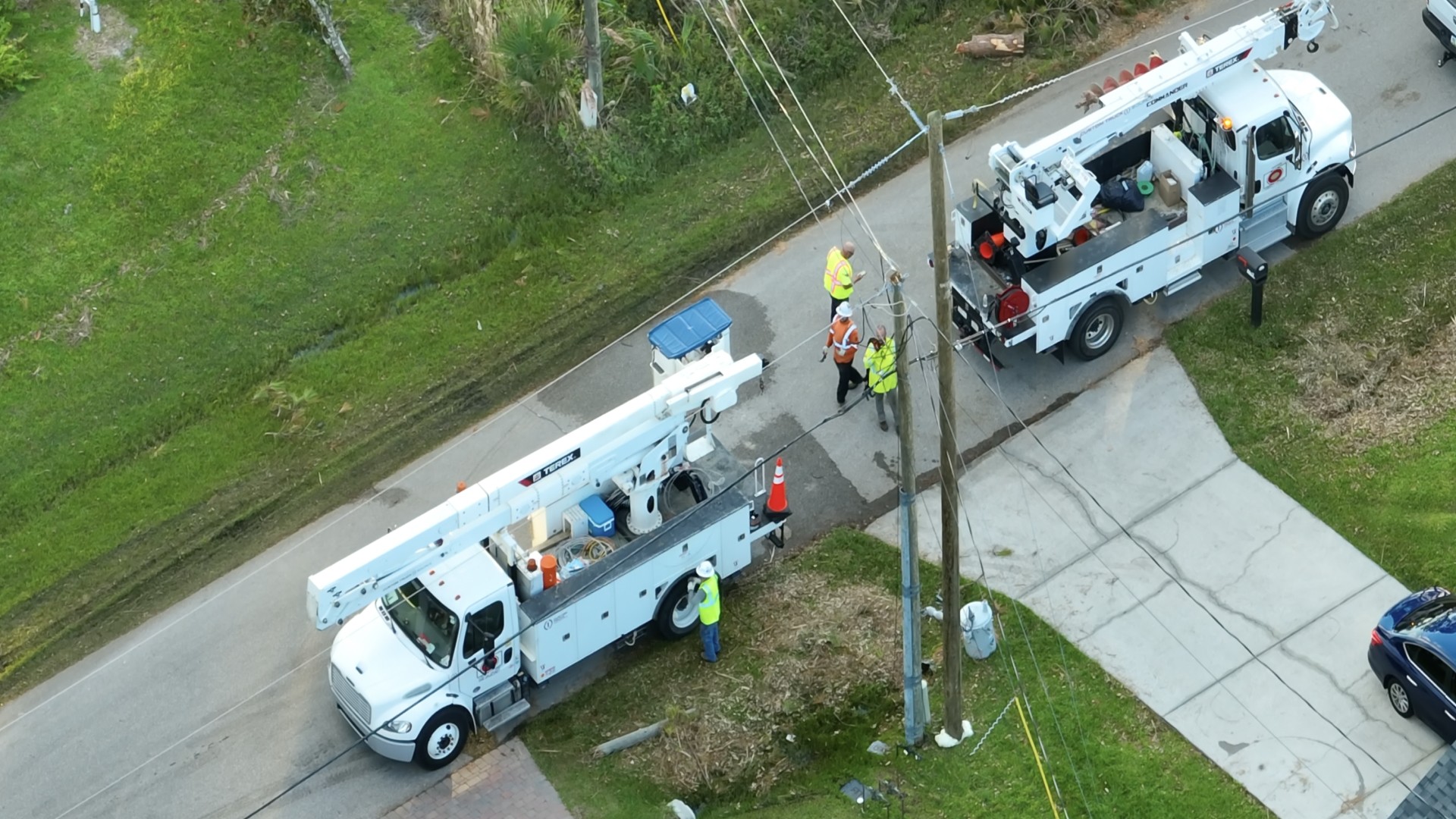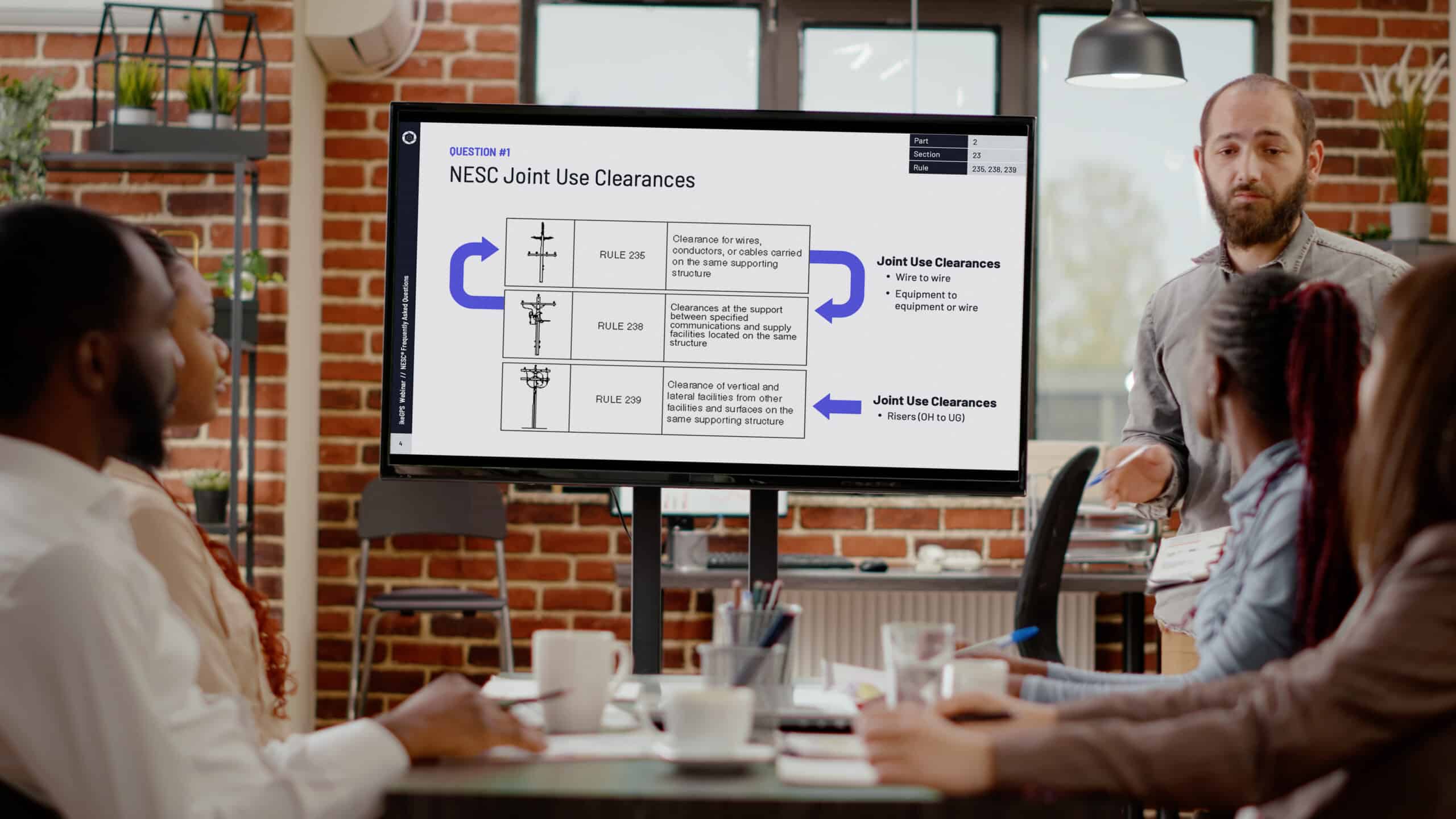The PoleOS™ Company
National Grid creates a more climate-resilient grid with accurate pole loading analysis

The Challenge
The impact of climate change and more frequent extreme weather events present an expanding risk to National Grid’s network and their ability to continue delivering reliable, quality power.
The Outcome
National Grid positioned themselves to effectively strengthen their electric system, leveraging IKE PoleForeman to improve their understanding of vulnerabilities across their grid. This proactive approach enabled them to take targeted actions to effectively mitigate identified risks.
8000+
poles being upgraded per year
Prioritizing grid reliability and resiliency
National Grid, one of the largest investor-owned energy companies in the US, owns and operates electric transmission and distribution facilities and networks across the northeastern United States, serving more than 20 million people throughout New York and Massachusetts.
Historically, National Grid weathers about four major storms per year. But, given the impacts of climate change, the company now expects their system will experience ten extreme weather events a year. Recent years have seen the entire North American electric grid impacted by hostile weather events that are only predicted to increase in frequency and intensity. As the grid rests on the backbone of hundreds of millions of overhead utility poles, it is uniquely vulnerable to these natural disasters.
Recognizing the importance of acting now to prepare their assets to withstand these changes, National Grid built an industry-leading approach to maintaining reliable, resilient grid infrastructure. They first carried out a Climate Change Vulnerability Study (CCVS), evaluating their systems and operations. Building on the results of the CCVS, they next developed a Climate Change Resilience Plan (CCRP).
This plan served to guide the development of measures to mitigate priority climate risks, focusing on the four key objectives:
- Strengthen and Withstand
- Anticipate and Absorb
- Respond and Recover
- Advance and Adapt
Embarking on the CCRP depended on a reliable understanding of the configuration and condition of the company’s overhead distribution infrastructure.
Joel Hornbeck
Lead Electrical Engineer at National Grid
A proactive approach to asset management
It's been a journey to get the clearest possible understanding of our system, and we continue to update the accuracy of data as we go forward [...] We use IKE PoleForeman as a critical piece of our I&M [inspection & maintenance] program.
Accurate structural analysis is a key component in determining network resiliency
National Grid knew that comprehensive awareness of their existing network was imperative in evaluating future grid hardening initiatives. Joel Hornbeck, Lead Electrical Engineer at National Grid, notes, “It’s been a journey to get the clearest possible understanding of our system, and we continue to update the accuracy of data as we go forward.”
Part of that journey includes pole loading analysis (PLA)— understanding, analyzing, and accounting for the forces affecting National Grid’s poles. PLA helps determine a network’s resiliency and combat the damaging effects of nature, making it a key component of both design and grid hardening initiatives. This analysis is key to National Grid’s inspection and maintenance (I&M) program, the company’s proactive approach to asset management. Hornbeck adds, “We use IKE PoleForeman as a critical piece of our I&M program.”
National Grid uses IKE PoleForeman to assess specific load case requirements, examine the impacts of wind, ice, and ultimately identify specific areas to focus their asset improvement efforts.
Accurate structural analysis data also helps in delivering on their CCRP, which includes upgrading 8,000+ poles per year to improve loading capacity over the next five years (2026-2030).
Leveraging IKE PoleForeman, National Grid understood the strength and capacity of their network and gained visibility on the weak points of their grid. With that information in hand, the company can allocate resources to alleviate the impact of weather hazards and mitigate system design to keep the lights on.
Learn about how IKE PoleForeman can help build a more resilient grid
Related Resources
Double trouble: The lingering problem of ghost poles on America’s power grid
Proactively managing double wood instances can help utilities stay compliant with regulatory requirements for removal or replacements.
Read NowIKE for Electric Utilities
Advanced pole data and analysis can deliver actionable insights to protect the integrity of your overhead infrastructure and increase resilience.
Learn moreNESC® and OSHA Training Classes
IKE provides online and in-person training classes on key safety codes to meet your company's needs and schedule.
Learn More






